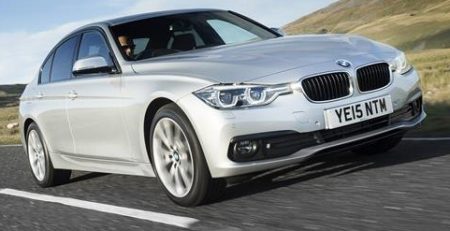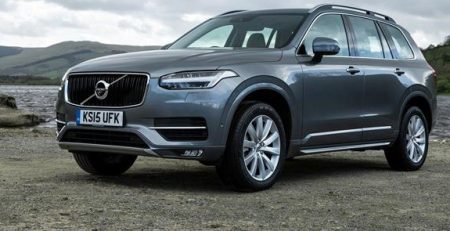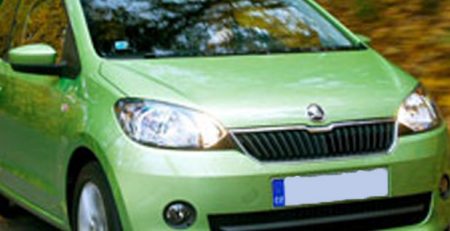Maximise resale value of your new BMW with these specs Specify you factory ordered car properly with a BMW configurator. Th read more
How to avoid holiday car hire scams
There are a number of hefty rip-off charges that car hire companies look to pressure tourists into. Hidden charges, hiked insurance bills, and expensive extras are just a few car cons that could be costly when it comes to picking the vehicle up on your arrival.
In 2015, the European Consumer Centre (ECC) saw a worrying 37% rise in the number of year-on-year complaints about supplementary charges for car hire across the continent. Here we'll explain the pricey scams to look out for when arranging car hire abroad and how to avoid being ripped off.
Fuel charges
The ECC say that the biggest number of complaints they receive surrounding European car hire is regarding fuel charges. Most car hire companies require that the car is brought back to them with a full tank, and if it isn't 100% topped up they can issue an admin fee and an inflated price on the missing fuel per litre. Many companies have a "full-empty policy", where you have to pay upfront for a full tank of petrol and can return it empty. However, you're likely to be charged an inflated price, and it's unlikely you will use all of the petrol you've paid for. Some companies also ask to see fuel receipts for the last refill, and charge a fee if it can't be produced.
The solution:
Search for car hire companies that allow you to return the vehicle with the same amount of fuel it had when you picked it up.
Hidden charges
Reading the small print when booking car hire can go a long way to reducing the chances of being caught out by hidden charges. A quick, but extensive read through could spot potential pitfalls including admin charge in the event of damage or theft, extra costs for drivers who've had a licence for less than four years, and payments for parking in the wrong place.
The solution:
Read the contract carefully, query anything you don't understand and ALWAYS read the small print.
Damage charges
Whether it was you that has damaged the car or it was something as small as a scratch that was missed in the pre-inspection of the vehicle, car hire companies don't hesitate when it comes to charging for any damage found on the vehicle when it's returned. Before you take the hire car away you are allowed to have a look around for any damage, if it has the correct safety kit with it, and that everything tallies up with the inspection sheet. The last thing you want to be doing is paying for someone else's bumps and scrapes.
The solution:
Make sure to take plenty of photos and videos of the hire car, both before driving it away AND dropping it back off. This should provide you with enough evidence if the company suggest you caused any damage to the vehicle. Also, when inspecting the car make sure a witness is accompany you whilst going around the car.
Collision damage waiver
Also known as car insurance, 'collision damage waver' is one of the more complicated extras to get your head around when arranging car hire abroad, and therefore is easy for companies to exploit. Collision damage waver is usually included in the price, however, it also comes with an excess of around €1,000. That figure is 'pre-authorised' on your credit card at the check-in disk, and if you damage the car you will lose some or all of that amount.
The solution:
You can buy an excess waiver, but the price is often not quoted by companies when the booking is initially made. Make sure to double check for any exclusions on excess waivers, as some parts of the car such as tyres and windscreens - typically likely parts to suffer damage - can be excluded.
Paying in sterling
Quite an obvious, yet simple trap to fall into is being asked to pay in pound sterling when the car hire firm uses an uncompetitive exchange rate, ultimately costing the customer more. It is a legal requirement for firms to give customers a choice of which currency to pay in when collecting the vehicle.
The solution:
When asked to pay the amount, check the amount and which currency is being used.
Expensive extras
Whether it's a child's car seat or a sat-nav, the car hire firms will try to offload as many expensive extras on top of the vehicle at the point of pick up. These extras could cost up to hundreds of pounds, and if you don't take the time to properly prepare for the trip and forget an essential for the car, you may be forced to accept the extras.
The solution:
Prepare for the trip with a check list and include essentials such as your own child seats and sat nav.
Unwanted upgrades
Car hire companies reserve the right to upgrade you to a more expensive model if for some reason they are unable to support the car that was initially ordered. Additional costs should be made clear, but that is not always guaranteed.
The solution:
If you find that on arrival you have been given an upgraded car, you should ask if this is free of charge as soon as you find out. If it turns out a fee is required, make sure to get an exact sum. Also check the rental contract before signing it.
Other tips for enjoying a better experience with car hire abroad include:
- Book early - organising your car hire in advance will get you cheaper prices, as booking at the airport when demand soars in peak season will mean higher prices.
- Compare prices - there are comparison sites for car hire that allow you to filter searches for your requirements.
- Keep the paperwork - remember to keep hold of any paperwork relating to the car hire and check your credit card statements in case you've been over charged.
- The DVLA code - anyone wanting to hire a car while travelling abroad will need a special code to show convictions like speeding. Drivers will need to log on to the DVLA website to get a code, but the code is only valid for 72 hours.




